Jo Brand battery acid joke 'went too far', BBC rules
- Published
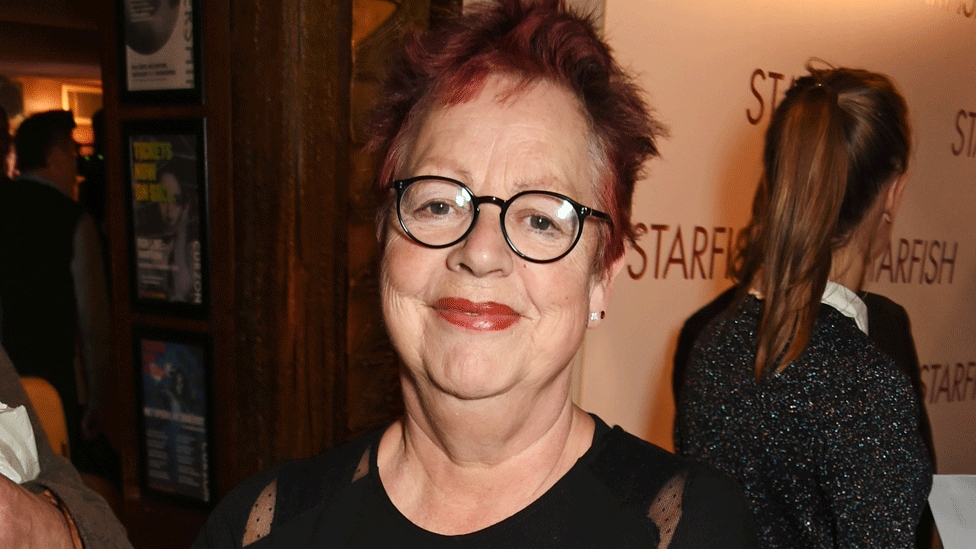
Jo Brand admitted it was "a somewhat crass and an ill-judged joke"
Jo Brand's controversial joke about throwing battery acid "went beyond what was appropriate" for a Radio 4 comedy show, the BBC has ruled.
The corporation has partially upheld complaints about the quip made by the comedian on Radio 4's Heresy in June.
Referring to political figures who had been hit by milkshakes, she said: "I'm thinking, why bother with a milkshake when you could get some battery acid?"
But the BBC dismissed complaints that her remark amounted to incitement.
Following the broadcast, Brexit Party leader Nigel Farage, who had a milkshake thrown at him by protesters several weeks earlier, accused Brand of "inciting violence".
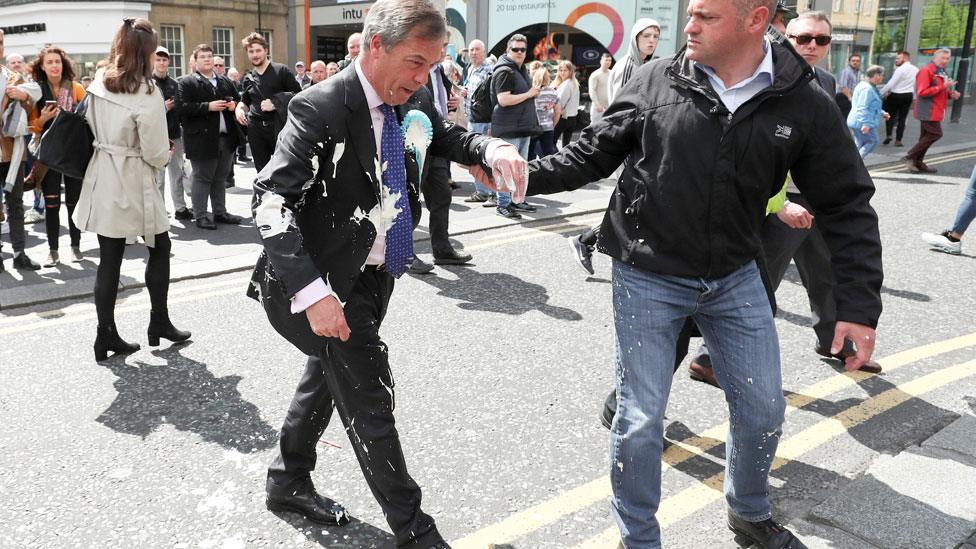
Mr Farage was targeted with a milkshake by a protester in May
The corporation's Executive Complaints Unit [ECU] said it disagreed because "it has considered the context in which the words were spoken".
A summary of the findings continued: "Whilst the ECU recognised that the wider message from this episode is an argument for more civility in political discourse, not less, and Ms Brand's contribution is not intended to be taken as face value, the ECU felt that it went beyond what was appropriate for the show.
"So it was partially upheld against generally accepted standards of BBC output. The ECU also noted that in the right context and with the right treatment, there is no subject matter which should be beyond the scope of comedy."
Media regulator Ofcom only considers complaints about BBC programmes if they have been through the BBC complaints process first. On Thursday, Ofcom said it had received 444 complaints about Brand's joke, including one that had been through the BBC process.
"We are assessing the complaint against our broadcasting rules, but are yet to decide whether or not to investigate," an Ofcom spokesperson added.
In the programme, after making the battery acid remark, Brand continued: "I'm not going to do it, it's purely a fantasy. But I think milkshakes are pathetic."
At the time, the BBC said panellists on Heresy - a long-running comedy programme - often said things which were "deliberately provocative and go against societal norms but are not intended to be taken seriously."
However, after the broadcast, the corporation removed the joke from the catch-up version of the show and said "comedy will always push boundaries" but that it regretted "any offence we have caused".
The comic later reportedly admitted, external that it was "a somewhat crass and an ill-judged joke".
Then-Prime Minister Theresa May's spokesman said the BBC should explain why the joke was "appropriate content" for broadcast. The Metropolitan Police said it would not take action.
Following the complaints unit's ruling, a BBC spokesperson said: "We note the findings and that the BBC's ECU concluded the comments did not condone violence and that no subject matter should be beyond the scope of comedy."

Follow us on Facebook, external, on Twitter @BBCNewsEnts, external. If you have a story suggestion email entertainment.news@bbc.co.uk, external.
- Published15 June 2019
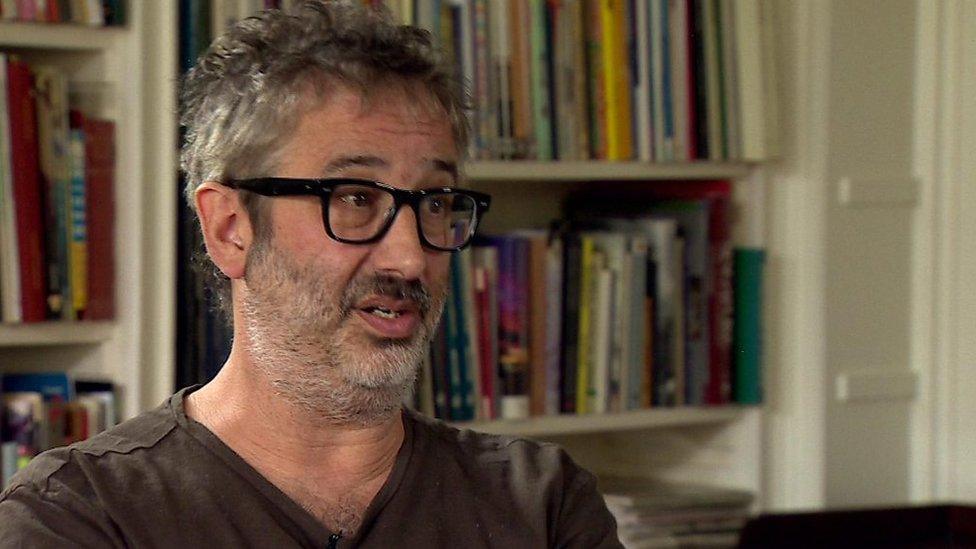
- Published14 June 2019
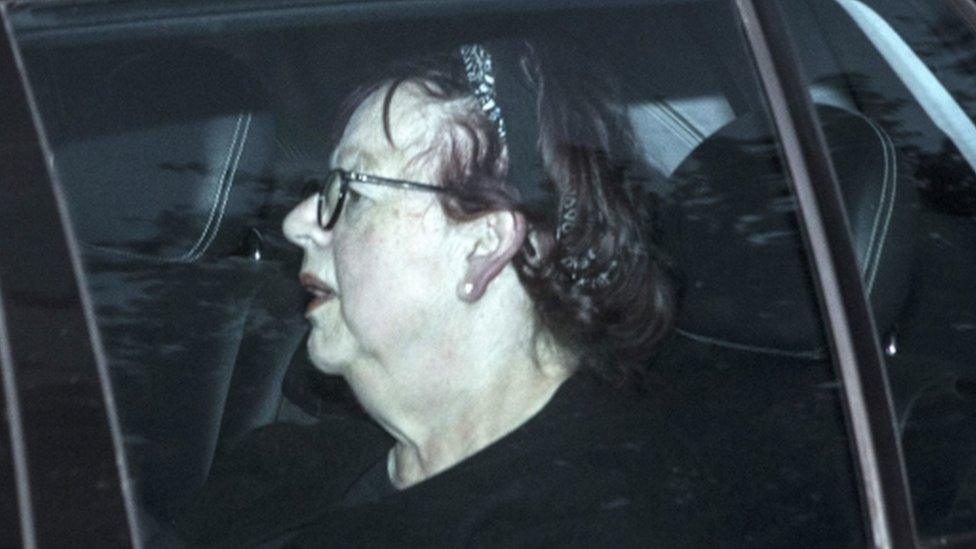
- Published13 June 2019
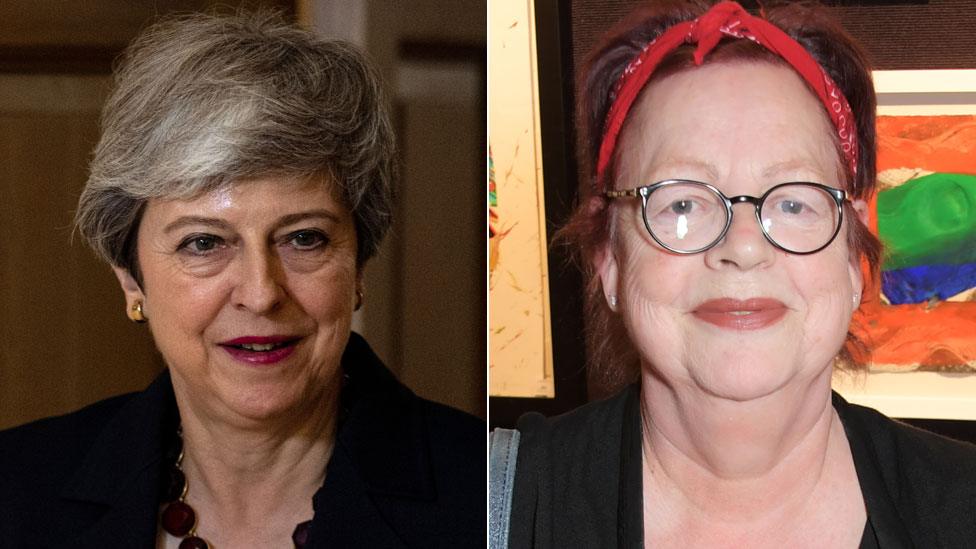
- Published13 June 2019

- Published12 June 2019
